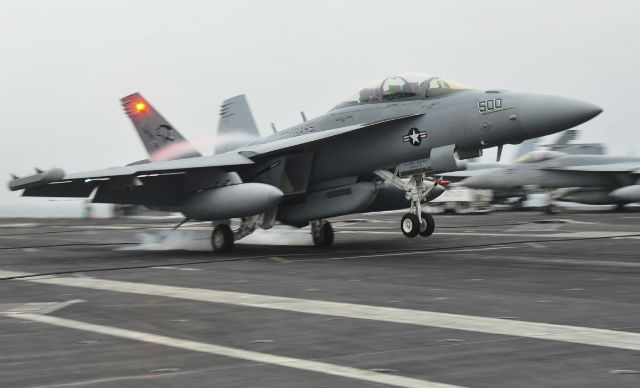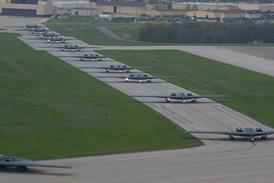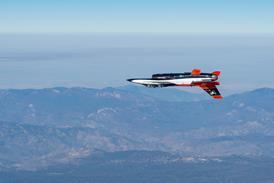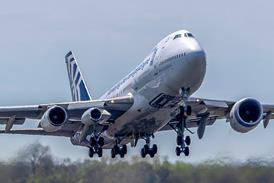The US Navy awarded Raytheon an almost $280 million contract for the technology development (TD) phase of the service's Next Generation Jammer (NGJ) programme on 8 July, the service says.
The Naval Air Systems Command (NAVAIR), which administers the effort to build the new jammer pod, says the system will "transform how the service executes its airborne electronic attack mission".
Raytheon expressed its delight at being selected for the contract, but offered little in the way of details. "We couldn't be more pleased with the customer's selection of our NGJ offering," the company says. "The Raytheon team worked diligently to put forth an innovative, next generation solution that meets current customer requirements and potential future needs."
Raytheon was picked for the TD phase after a 33-month technology maturation period in which four contractors developed and matured "several critical technologies" key to the NGJ programme. Originally, the USN had hoped to award two TD contracts, but those plans appear to have been scrapped in favour of a single contractor.
 |
|---|
US Navy |
According to NAVAIR, the 22-month long TD phase will integrate the various components of the jammer into "testable subsystems". Additionally, Raytheon will have to complete the preliminary design of the NGJ pods before the USN moves on to the follow-on engineering and manufacturing development phase. "Keys to success include demonstrations of required capabilities, as well as crafting a design that will be tested and flown on the [Boeing EA-18G] Growler during the subsequent four-and-a-half year engineering and manufacturing development phase," NAVAIR says.
The NGJ design is set to replace the existing ALQ-99 jammer pods carried onboard the USN's fleet of EA-18Gs starting in fiscal year 2020. The new jammer, which utilises active electronically scanned array antenna and gallium nitride-based transmit/receive modules, offers far greater capability than the obsolescent ALQ-99 mid-band pods, which are already hard-pressed to defeat the latest threat systems.
However, the navy's ALQ-99 low-band pods, which are relatively new, will be retained for the foreseeable future. Nor are there any immediate plans to develop a new high-band pod.
Source: Flight International
















